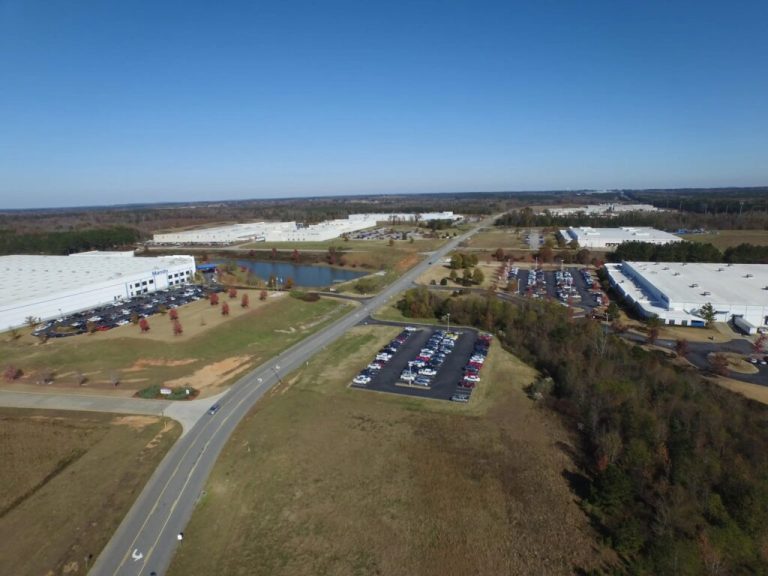Auburn Wildlife Expert: Wild pigs cause significant damage to Alabama’s environment and wildlife
Reading time: 4 minutes

According to a recent Auburn University news release, wild pigs in Alabama cause significant damage to agricultural crops and can pose risks to native wildlife, livestock, the environment and human health and safety.
How bad is the problem in Alabama? Just ask Professor Mark Smith of Auburn University’s College of Forestry, Wildlife and Environment and the Alabama Cooperative Extension System.
Both are calling for the implementation of immediate measures that will control and eradicate wild pigs.
Read on to learn more about this emerging conservation crisis.
About Wild Pigs
Free-ranging populations of wild pigs, a non-native species, can be found throughout most of Alabama, with the greatest abundance in the southern half of the state. In the more northern counties of Alabama, wild pigs occur in smaller localized pockets all the way up to the Tennessee border.
“Although estimates vary widely, wild pig damage to agriculture nationally likely exceeds $1 billion per year, with reports from many states in the Southeast citing damages in the 10s of millions of dollars each year (e.g., $16.1 million per year in Tennessee to $98.8 million per year in Georgia),” said Smith. “Their impact to natural resources and wildlife are much more difficult to quantify but damage estimates likely double that of what is known for agriculture. Wild pigs compete for food and cover resources with economically important game species such as white-tailed deer and wild turkeys. They can also have a significant impact on water quality in local watersheds, which poses concern for human health.”
They are also known carriers of more than 30 bacterial and viral diseases and numerous internal and external parasites.
Major Problem in the Bankhead National Forest

Maggie Johnston, Wild Alabama’s Executive Director has seen the damage wild pigs can do on the state’s public lands firsthand.
“Wild Alabama supports the US Forest Service plan to control wild pigs in the Sipsey Wilderness. These pigs are a non-native invasive species that is causing damage to the Bankhead Forest, Sipsey Wilderness, and the Sipsey Fork of the Black Warrior, Alabama’s only wild and scenic River. Their rooting behavior not only destroys habitat on which native species depend, but causes erosion that harms several endangered species in the Sipsey Fork. These include the Flattened Musk Turtle and Black Warrior Waterdogs. Pigs can produce as much as 6 times the excrement of humans. This is also detrimental to the wild places we work to educate about and protect.”
What Can Landowners Do?
Can we control the wild pig population?
Yes, and no, according to Smith.
“Wild pig populations can be substantially reduced—if not eradicated—from small acreages (e.g., a farm or watershed level) through systematic, premeditated and intensive removal efforts,” said Smith. “In most cases, hunting or opportunistic shooting of wild pigs will rarely control a population. Live trapping (followed by euthanasia) of wild pigs using large, corral style traps is the most cost- and time-effective means for removing wild pigs. It is important to note that, as per Alabama law, wild pigs caught in corral traps or bayed by dogs must be euthanized on site. It is illegal in Alabama to transport live wild pigs.”
If wild pigs show up, landowners should develop and begin a removal program immediately, Smith and the Alabama Cooperative Extension System advise. It’s much easier to control wild pigs when they first invade and only a few individuals are present. For established populations, a sustained and systematic trapping program will most likely be necessary.
Resources
Need a good handbook on controlling wild pigs or video? Smith suggests:
- Secure a joint Auburn and Mississippi State University publication titled “A Landowner’s Guide for Wild Pig Management: Practical Methods for Wild Pig Control”
- Watch videos on YouTube about wild pig management
Make a Difference
Johnston told us there are innovative wild pig control programs in the Sipsey Wilderness and Bankhead National Forest.
“This is a statewide problem that is devastating landowners and public lands. Wild Alabama appreciates Auburn University and Alabama Cooperative Extension System and their efforts to protect and preserve our wild places.”
Follow The Bama Buzz on Facebook, Instagram and LinkedIn, and sign up for our newsletter to get guides, stories, and breaking news delivered to your inbox every day.



